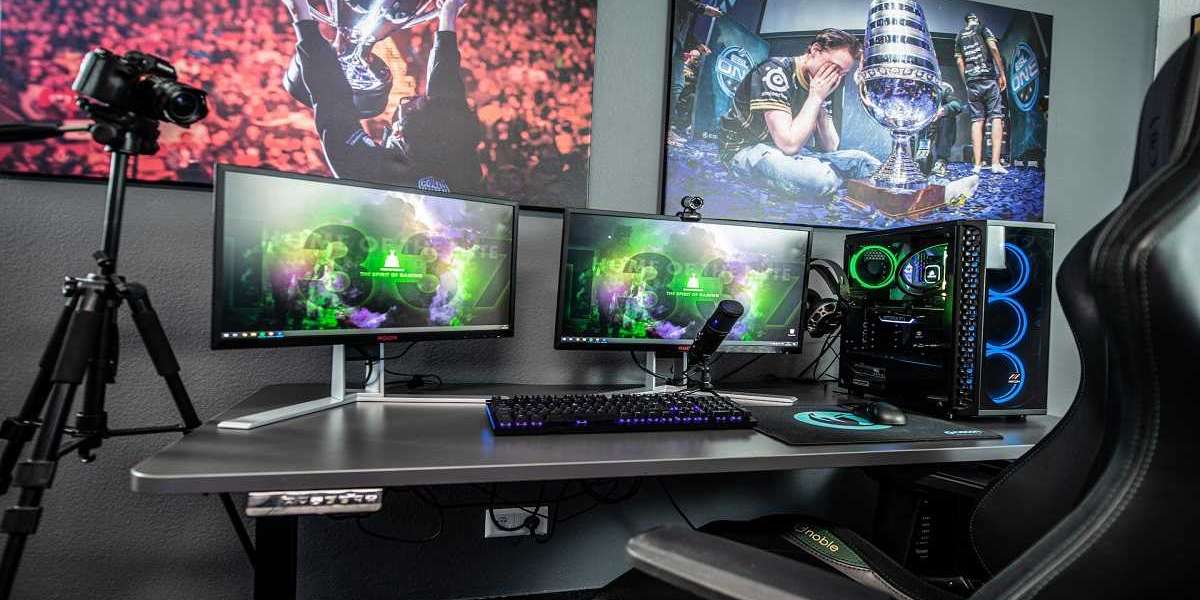In the ever-evolving world of gaming, having the perfect gaming rig can make all the difference in your gaming experience. While pre-built gaming PCs are readily available, many gamers opt for building their own custom machines. Not only does this allow for greater customization and performance, but it can also be a fun and rewarding endeavor. If you're new to PC building and eager to embark on this exciting journey, this beginner's guide will walk you through the steps to build your very own gaming PC.
Why Build Your Own Gaming PC?
Before we dive into the nitty-gritty of building a gaming PC, let's discuss why you might want to take on this task. There are several compelling reasons to build your own gaming rig:
- Customization: Building your PC means you have complete control over the components. You can choose the best CPU, GPU, RAM, and storage to suit your specific gaming needs.
- Cost-Effectiveness: Building a gaming PC can be more cost-effective than buying a pre-built one. You can allocate your budget where it matters most for gaming performance.
- Learning Experience: Building a PC is an educational journey. You'll gain valuable knowledge about hardware components, how they work together, and troubleshooting.
- Future-Proofing: When you build your PC, you can select components that are easily upgradable. This can extend the lifespan of your gaming rig.
- Pride of Ownership: There's a sense of accomplishment that comes with successfully building your own PC. It's like putting together a complex puzzle that ultimately rewards you with an incredible gaming experience.
Components You'll Need
Before you start building your gaming PC, you need to gather all the necessary components. Here's a list of the essential parts you'll require:
- CPU (Central Processing Unit): This is the brain of your PC.
- GPU (Graphics Processing Unit): Also known as a graphics card, this is crucial for gaming performance.
- Motherboard: The main circuit board that connects all components.
- RAM (Random Access Memory): This provides temporary storage for data the CPU is currently using.
- Storage: You'll need an SSD (Solid State Drive) or HDD (Hard Disk Drive) for storing your games and files.
- Power Supply Unit (PSU): Provides power to your components.
- Computer Case: Houses all your components and provides airflow.
- Cooling System: Ensures your CPU and GPU don't overheat.
- Operating System: Usually, Windows is the preferred choice for gamers.
- Peripherals: Don't forget a monitor, keyboard, and mouse.
The Building Process
Now, let's break down the building process into simple steps:
- Prepare Your Workspace: Find a clean, well-lit, and static-free area to work on your PC. Gather all your tools, including screwdrivers, zip ties, and cable management tools.
- Assemble Your Components:
- Install the CPU: Follow the motherboard's instructions for CPU installation. Be sure to apply thermal paste before attaching the CPU cooler.
- Install the RAM: Most motherboards have slots for RAM modules. Match the notches on the RAM sticks with those on the slots and firmly push them in until they click into place.
- Install the GPU: Carefully insert the graphics card into the appropriate PCIe slot on the motherboard. Make sure it clicks securely.
- Connect the Storage: Install your SSD or HDD in the drive bays of the case and connect the necessary cables to the motherboard.
- Connect the PSU: Attach the power supply to the motherboard, GPU, and other components as needed. Make sure all connections are secure.
- Cable Management: Neatly organize and route cables to ensure good airflow and a tidy appearance. Use zip ties to bundle cables together.
- Install the Cooling System: Depending on your CPU and GPU, you may need additional cooling solutions. Follow the manufacturer's instructions for installation.
- Power On and Test: Before closing up the case, connect a monitor, keyboard, and mouse. Power on the PC to make sure everything is working correctly. Check that the BIOS recognizes all components.
- Install the Operating System: If all is well, proceed to install your chosen operating system (usually Windows). Follow the installation prompts and ensure all drivers are up to date.
- Install Games and Enjoy: Once your operating system is up and running, install your favorite games and start gaming!
Common Mistakes to Avoid
Building a gaming PC can be a smooth process, but there are common mistakes that beginners often make. Here are some tips to avoid these pitfalls:
- Rushing: Take your time with each step. Rushing can lead to mistakes that may damage your components.
- Static Electricity: Handle components with care and discharge static electricity by touching a grounded object before touching sensitive parts.
- Inadequate Cable Management: Poor cable management can obstruct airflow and lead to overheating. Keep cables tidy.
- Ignoring Compatibility: Ensure that all your components are compatible with each other and fit in your chosen case.
- Not Reading the Manuals: Always consult the manuals that come with your components for specific instructions.
Conclusion
Building a gaming PC as a beginner may seem daunting, but with patience and the right guidance, it can be an immensely rewarding experience. Not only will you have a gaming machine tailored to your preferences, but you'll also gain valuable knowledge about computer hardware along the way. So, roll up your sleeves, gather your components, and embark on the journey of building your own gaming PC. Before you know it, you'll be enjoying your favorite games on a machine you built with your own two hands. Happy gaming!
Author Section :-
I am a passionate blogger. I love to share my thoughts and ideas through blog posting. Antonio Smith has five years of experience in Tech, Business, Health. I am associated with thecryptojournals.net, thecasinojournals.com, thecasinomagazine.com, digiimagination.in, globalbulletinmagazine.com, greenenergyjournals.com



